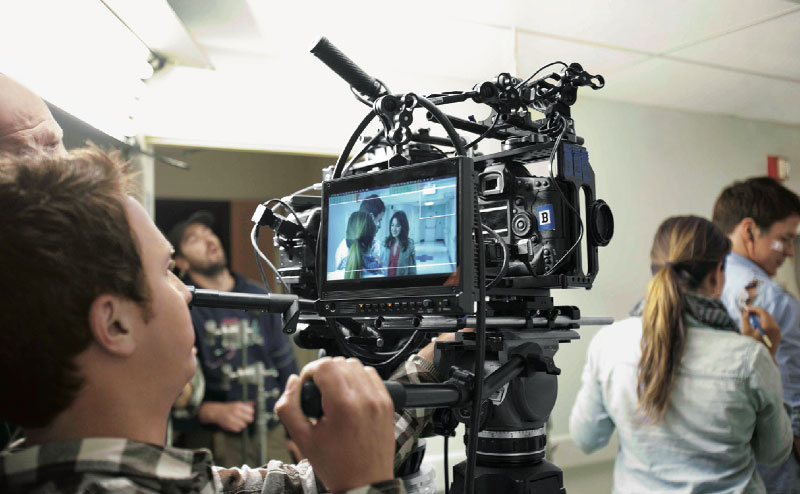It’s been said that 2014 will be the year of 4K, and with recent announcements from Canon, Panasonic and Nikon who now all offer (or planning to offer) 4K DSLRs, it seems that this sentiment may just be true. This is very exciting news for DSLR shooters everywhere as just about every other facet of this industry is starting to push 4K. Just look at how many new affordable 4K TV’s are on the market, or the fact that 4K delivery is now a reality for production houses, not to mention streaming sites like YouTube that are already offering 4K exhibition at home.
As it currently stands Canon, Panasonic, and Nikon are all getting into the 4K DSLR game, with each of them being at a different stage. Other manufacturers (like Sony for example) will inevitably follow suit, and I’m sure that at this years NAB we will see more 4K DSLRs than we can handle. But for now, here’s a quick refresher on where things stand with the three manufacturers that are already 4K minded.
Canon

Canon’s 1DC was the first DSLR to shoot 4K, and is still currently the only readily available 4K shooting DSLR on the market. Since the camera has such a high price tag of $12,000, it hasn’t been adopted by many shooters even though the image quality is fantastic. The lack of interest is also largely because the camera only shoots in a highly compressed 8 bit 4:2:0 color space, which makes it much less desirable than other 4K cameras like the Red Scarlet, Sony F5, Or Blackmagic Production Camera, which all shoot RAW.
Panasonic

Panasonic will be releasing the Lumix GH4 very shortly – in fact it was rumored this week that it will be released on February 7th, which is just barely around the corner. I wrote about the camera in an earlier blog post and feel that the specs seem to be just right, at least on paper. Notably, the camera will shoot at bit rates up to 200mbps in 10 bit 4:2:2. A big step up and noticeable difference from the more heavily compressed 1DC. Although many shooters are hoping for a DSLR that shoots RAW, I personally think it’s overkill and that a 200mbps ALL-I codec would be sufficient. Shooting on a DSLR should be a simple process, and once you get into a RAW workflow, extra storage, media changes, etc. you’re better off shooting on a true cinema camera. DSLRs are meant to be agile, so I think the specs on this camera fall perfectly into the sweet spot.
Nikon

With Canon’s 1DC already on the shelves and the Lumix GH4 coming out next month, Nikon is definitely the furthest away from actually delivering a 4K camera. That said, news broke this week that a Product Manager from Nikon revealed that the company does have plans for a 4K DSLR. With NAB coming up in just a few short months, I would say that there is a very good chance we may something new from Nikon at the show, or at least some more definitive information as to which new camera or cameras they plan on giving 4K capabilities to. Although they are further behind than Canon and Panasonic, this news is still very relevant to what is going on in the industry, as Nikon is not primarily a video company. Canon and Panasonic both have a video line of cameras and as such you would assume that they are jumping on the bandwagon, but the fact that Nikon (who is really only a stills company) wants to jump on board, it’s a clear indication of them times we live in.
Does Any Of This Matter?
Yes and no. If you’re a specific type of shooter that needs 4K for a unique purpose at an affordable cost, then yes it is a big deal. It was only a few short years ago that shooting on the RED ONE was one of the only ways to acquire 4K material, and we all know how much those cameras cost. Now there are multiple options for 4K acquisition, and the fact that this capability is coming out in DSLR bodies is pretty astounding.
The flip side to this though, is that even with 4K becoming so common, you still don’t really need it. Especially on DSLR level shoots. Even though 4K exhibition (specifically UHD TV’s) are becoming commonplace, how many times have you actually been asked to deliver something in 4K? Probably rarely, if ever. This will inevitably change over the next year or two, but right now at this moment, the vast majority of projects being delivered and screened in 4K would have never been shot on a DSLR. And not because 4K DSLRs didn’t exist when they were produced, but because you would never use a DSLR when you have an Alexa or a 35mm film camera at your disposal – unless it’s for speciality shots. Personally speaking, although I own many cameras, if I need to shoot something that is large enough in scale that it will actually be shown in 4K in the future, I am renting the camera gear for the shoot.
2014 may in fact be the year of 4K – it’s certainly is shaping up that way. But I don’t think it’s the year of the 4K DSLR… That might be 2015. Will there be lots of 4K DSLRs released this year? Almost certainly. But it’s still going to be a long while before DSLR level productions are actually in need of 4K and requesting shooters to bring out 4K gear. So right now, if you need 4K for a specific need, then definitely go for it – I’m sure I will wind up with a 4K DSLR in the near future myself! But that said, don’t rush out to buy one and spend more than you should just because it is higher resolution than your current camera. After all, it’s the DP that makes the image, not the camera. And of course resolution is only one of many components you need to consider when buying a camera, alongside factors like Dynamic Range, which I feel is much more important. More on that on my article here: Why Dynamic Range Is More Important Than Resolution For Achieving A Film Look.



4 Comments
Jeff Allen
atI dont get it? Why buy a DSLR to shoot 4K video why not simply buy a video camera shooting 4K like the 4K Black Magic camera? DSLRs are primarily for shooting stills the guy in the picture is using a monitor not an optical viewfinder or even the electronic viewfinder of the Panasonic GH4 its simply nuts.
Noam Kroll
atThis is true for many shooters, but there are times when the form factor of a DSLR is advantageous, especially when shooting guerrilla or documentary-style. Also, some people need still photos as well.
Heri
atI love how Canon gives beautiful reds and skin tones but have such crappy encoders. Looking forward for them releasing 1DX-level video on a $2k body this year. I’d buy that. If not, we will get additional blackmagic cameras
Noam Kroll
atYes they do somehow have the best color science – I will give them that! Looking forward to seeing their next move this year at NAB.